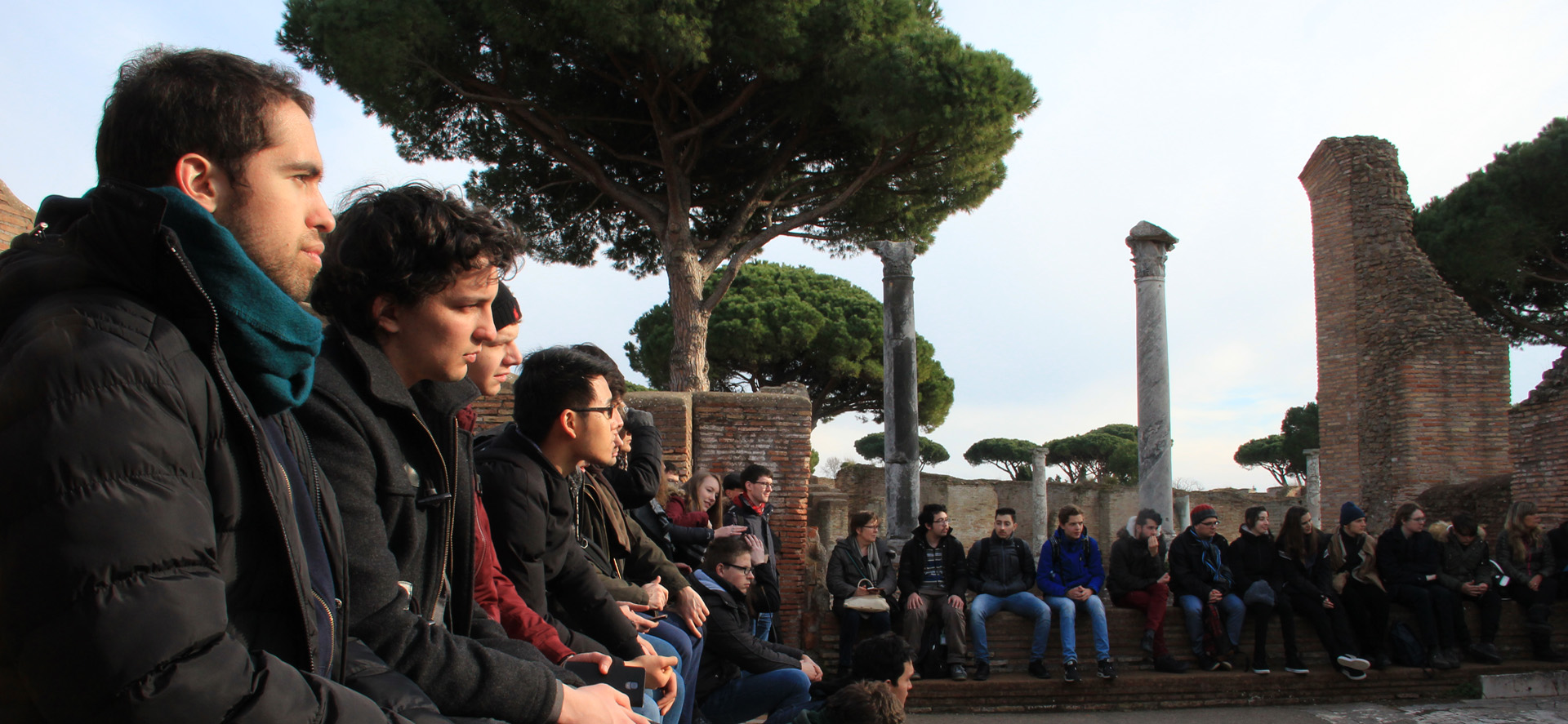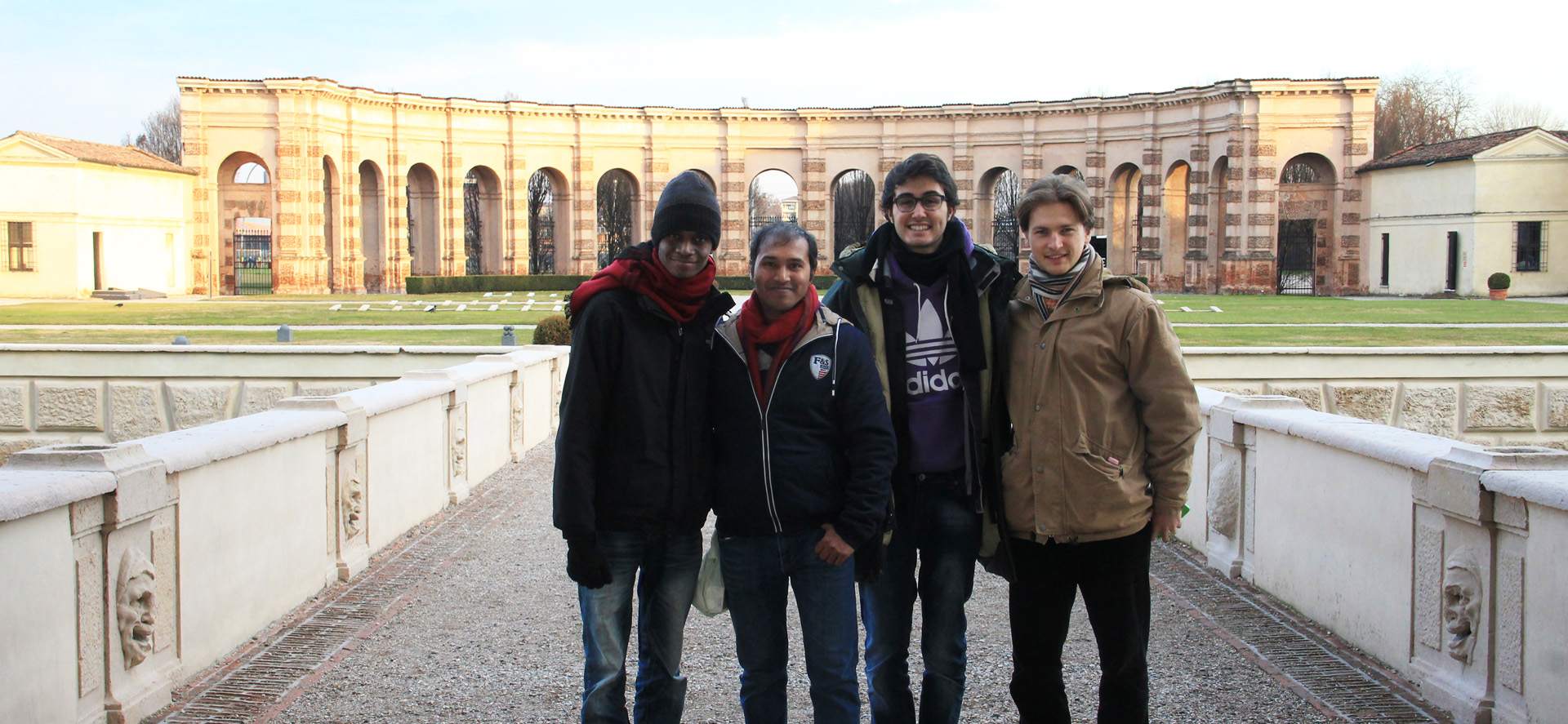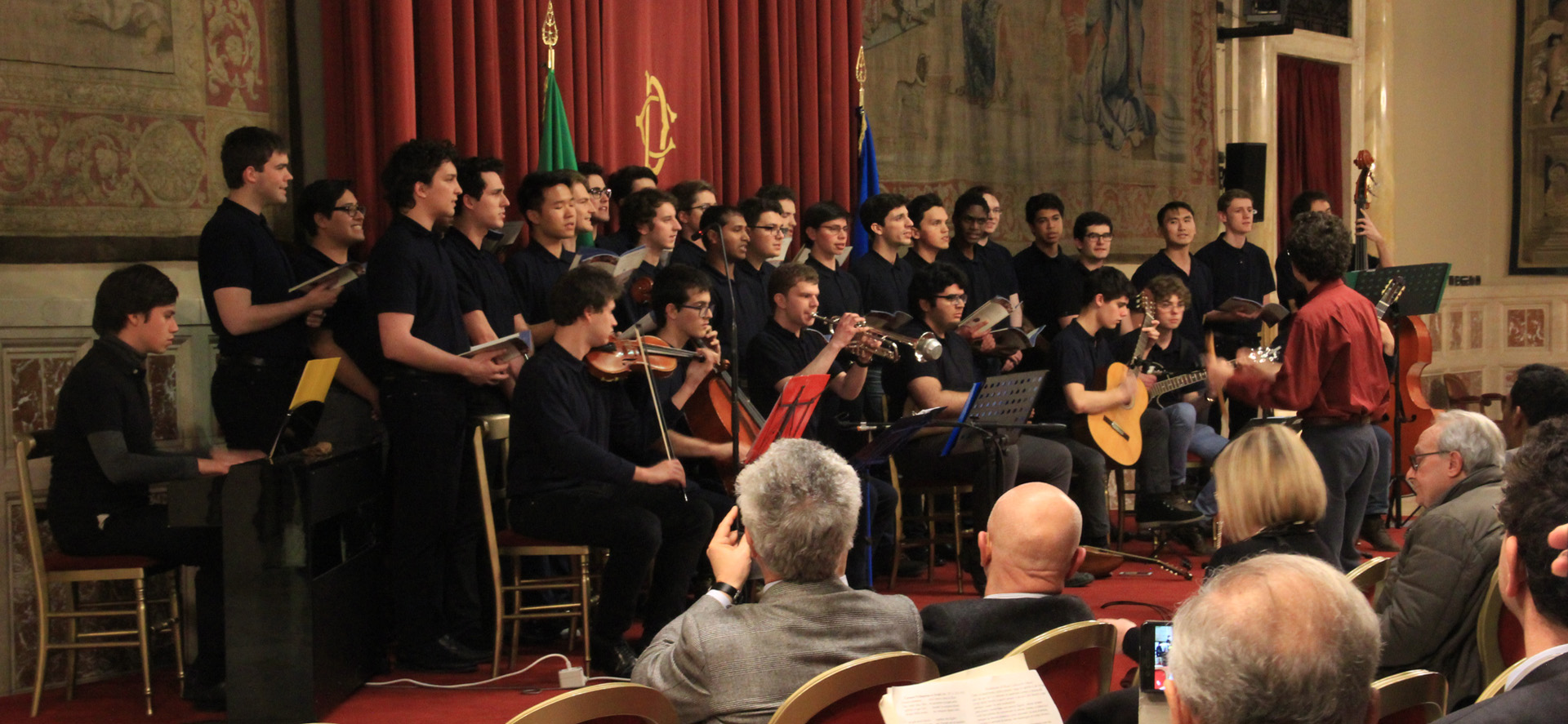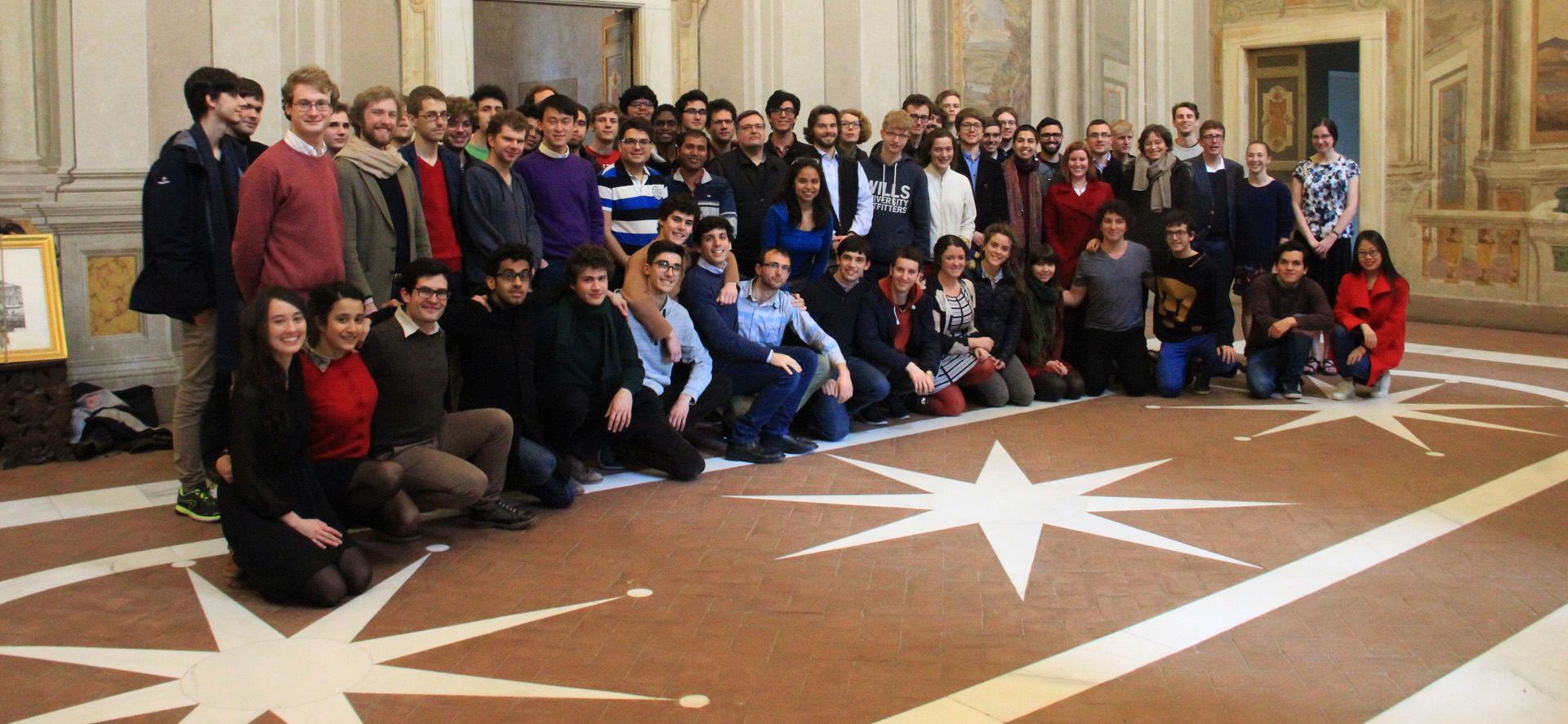Lessons
Lessons, which are held six days a week, start in the first half of October and continue almost until the end of June of the following year. In addition, students learn much outside of the classroom thanks to daily conversation with one another and with the teachers; all communication through the entire school year occurs in Latin or - occasionally - in ancient Greek.
The following are the base disciplines:
- Ancient Latin Literature
- Neo-Latin Literature
- Greek Literature
- Latin Language
- Latin Composition
- Greek Language
- Greek and Roman History
- History of Ancient Philosophy
- History of poetry and Latin metrics
- Reading seminars of Latin and Greek classical texts
- History of Art
Extraordinary classes
In addition to the daily lessons, every year visiting professors come from European universities or other continents to hold seminars and courses on particular topics and disciplines. For example we cite the following:
- Latin Rhetoric
- Medieval Latin Literature
- Greek and Latin Paleography
- Homeric Philology
- New Testament Philology
- Utopian Latin Literature
- Scientific Latin Literature
- Neo-Latin Poetry
- Italian Literature
Such classes, ordinary and extraordinary, are supplemented by discussions and debates which are regularly held on topics of considerable importance. The subsequent dialogue not only provides an opportunity for exercising the language; it also develops critical judgment and the ability to address and argue questions of such a sort. The subject material for these discussions is usually taken from the very authors confronted during the classes. However, this material is not proposed with a purely literary or philological frame of mind; rather, it invites reflection on modern man, on government, on the predominant morals of our day. Sometimes it helps to use the ancients as a point of comparison that we may better know and define ourselves.
Cultural trips
In the Academy, liberal arts are cultivated not only within the classroom: thanks to frequent excursions to significant sites throughout Lazio and Campania - places which hold particular importance because of their historical remains - the students can relate to the ancients not only through their words, but also by immersing themselves in the same physical environments. The students of the Academy, therefore, are guided on itinerant lessons to the marvels of the city of Rome and its magnificent and abundant treasures, together with Ostia, Tibur and other archaeological sites of Lazio; likewise to Paestum, Baia, Cumae, Pompeii, Stabia, Herculaneum and the museums of Naples. These excursions, when combined with the reading of texts, vividly and indelibly impress the great cultural tradition of Greco-Roman civilization on the minds of the young students.
 English
English
 Italiano
Italiano
 Latina
Latina




